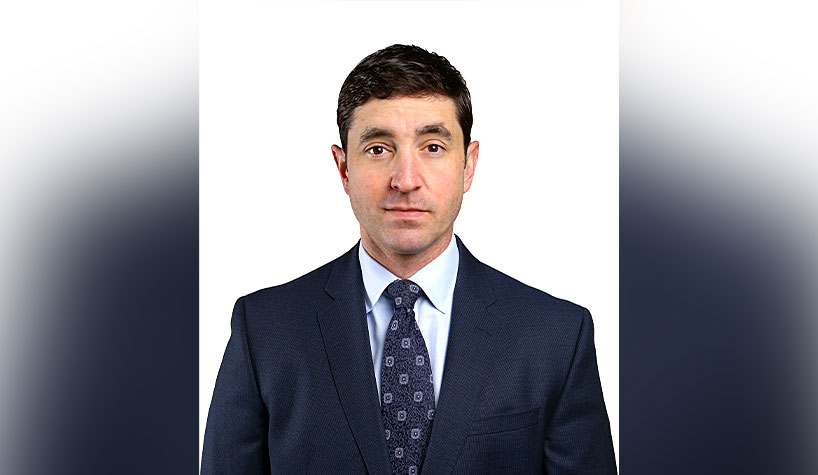By Michael G. McNally
The precipitous decline in revenue and ongoing lack of clientele has forced many hotels to make hard decisions. As the pandemic continues, and the prospect of further federal assistance remains unclear, many others will be facing the choice between enduring continued financial difficulties, or discontinuing operations, either temporarily or permanently.
For hotel owners and operators with a unionized workforce that contribute to a multiemployer defined benefit pension plan (MEPP) on behalf of those workers, withdrawal liability may become due in connection with temporary or permanent closures. It is often unexpected and unplanned for, and in some instances can be a staggeringly high cost. When withdrawal liability is factored in, it may impact the end result as perhaps remaining open is less financially burdensome than triggering withdrawal liability to a MEPP.
It is critically important that as decisionmakers analyze figures and evaluate options, withdrawal liability is not overlooked.
Under the Employee Retirement Income Security Act (ERISA), when an employer that contributes to an underfunded MEPP partially or totally ceases to contribute to the MEPP, the employer is responsible for its pro rata share of the MEPP’s unfunded vested benefits at the time of the withdrawal, subject to certain exceptions and adjustments. This amount, assessed upon the employer, is referred to as withdrawal liability.
There are two types of a withdrawal, both of which are relevant to hotel owners and operators: a complete withdrawal and a partial withdrawal.
A complete withdrawal occurs where there is a total and permanent cessation of contributions. A hotel closure, where there are no other controlled group members that contribute to the same MEPP, is an example of a complete withdrawal.
Controlled group is a highly important concept to understand, and to have considered, when analyzing the potential for withdrawal liability. A controlled group is generally two or more trades or businesses that are under common control. One controlled group type is a parent-subsidiary relationship, which occurs where one entity owns 80% or more of the other.
Tying a complete withdrawal and controlled group concepts together, an example is if a hotel closes and ceases to contribute to a MEPP, and has no other controlled group members that contribute to the same MEPP, a complete withdrawal will have occurred. By contrast if a hotel ceases to contribute to a MEPP, but there are other controlled group members that contribute to the same MEPP, no complete withdrawal will have occurred because across the entire controlled group there was not a total and permanent cessation of contributions to the MEPP. There is however the potential for a partial withdrawal.
There are several types of partial withdrawals, but the type most likely to present in this context would be a decline of 70% or more of contribution base units (CBUs), such as hours or weeks worked, over a three-year period. Importantly, the reduction is also measured across the controlled group.
A scenario where a partial withdrawal could arise is where there are multiple hotels in the controlled group that contribute to the same MEPP, and one or more of them permanently closes and cease contributing to the MEPP. If the overall contribution reduction across the closed hotels reaches 70% and continues for three years, a partial withdrawal will have occurred.
In the case of COVID-19-related staffing reductions and temporary closures, where it is expected that staffing will return to pre-pandemic levels afterwards, even if there is a 70% decline in staffing levels for a single year or even longer, if the decline in contributions is not 70% each year, for 3 consecutive years, no partial withdrawal will occur.
For controlled groups where there are fluctuations in employment levels, with one or more hotels closing, that all participate in the same MEPP, it is very important to carefully track contributions to mitigate the risk of a partial withdrawal being triggered. With careful management, contributions can be maintained at sufficient levels so that a partial withdrawal is not triggered. In many cases, keeping on additional staff can be a cost-savings in the long-run.
Another aspect of withdrawal liability that is key to understanding in connection with decision-making for hotel owners and operators is that controlled group members are also liable when an employer withdraws from a MEPP. The controlled group members don’t need to be in the same line of business, all that is required is that they are a controlled group member. This is important, as more often than not when a hotel closes it has few if any assets from which the MEPPs may recover. Thus MEPPs will seek to recover from other members of the controlled group. For example where a hotel contributes to an MEPP and triggers a complete withdrawal but has no assets to recover from, the MEPP can recover the unpaid withdrawal liability from other hotels or businesses in the controlled group, even if they don’t contribute to the MEPP.
There are statutory provisions that limit the amount of withdrawal liability where the withdrawal is triggered as a result of a liquidation or dissolution. Sections 4225(a) and (b) of ERISA provide different limits based on the circumstances of the withdrawal, and may be relevant in the case of a withdrawal resulting from a hotel closure.
A prudent step for hotel owners and operators that may be impacted by withdrawal liability, whether in connection with evaluating options of whether to remain open or for unrelated future planning, is to request an estimate of their liability from the MEPP(s) they contribute to. In order to make financially sound decisions, it is imperative that hotel owners and operators are aware of their potential withdrawal liability exposure, and understand in what circumstances it can be triggered.
Michael G. McNally is a partner in the Minneapolis office of Fox Rothschild LLP.
This is a contributed piece to Hotel Business, authored by an industry professional. The thoughts expressed are the perspective of the bylined individual.



